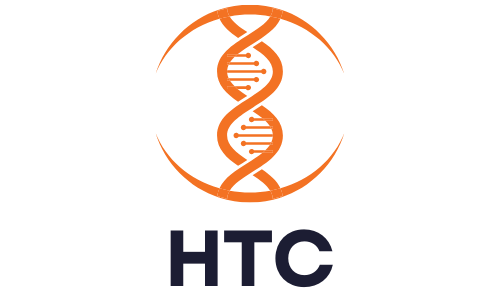The Future of HealthTech: Predictive Analytics and Personalized Medicine
HealthTech is a rapidly evolving field that promises to revolutionize healthcare delivery. At the forefront of this transformation are predictive analytics and personalized medicine, two interrelated domains that offer unprecedented potential to improve patient outcomes and streamline healthcare processes. This blog explores the future of HealthTech through the lenses of predictive analytics and personalized medicine, examining their current applications, benefits, challenges, and future prospects.
HealthTech encompasses a broad range of technologies, from electronic health records (EHRs) and telemedicine to advanced diagnostics and therapeutic tools. As technology continues to advance, the integration of artificial intelligence (AI), machine learning, and big data analytics is becoming increasingly prevalent. These innovations are driving the development of predictive analytics and personalized medicine, which aim to tailor healthcare to the individual needs of patients, thereby enhancing the efficacy and efficiency of treatments.
Predictive analytics involves using historical data, machine learning algorithms, and statistical techniques to forecast future health outcomes. This approach allows for proactive healthcare measures, such as early intervention and preventive care. Personalized medicine, on the other hand, tailors medical treatment to the individual characteristics of each patient, considering genetic, environmental, and lifestyle factors. Together, these technologies promise to transform healthcare delivery by providing more accurate diagnoses, personalized treatments, and improved patient outcomes.
This blog aims to explore the future of HealthTech through the realms of predictive analytics and personalized medicine, examining their current applications, benefits, challenges, and future prospects. By delving into these cutting-edge technologies, we hope to highlight the potential of predictive analytics and personalized medicine to revolutionize healthcare and provide valuable insights for healthcare providers, policymakers, and investors.
Understanding Predictive Analytics
Predictive analytics in healthcare involves the use of historical data, machine learning algorithms, and statistical techniques to predict future health outcomes. By analyzing patterns in large datasets, predictive analytics can forecast events such as disease outbreaks, patient admissions, and treatment responses, enabling proactive and preventive healthcare measures.
Definition and Scope
Predictive analytics encompasses various technologies and methodologies designed to analyze current and historical data to make predictions about future events. In healthcare, this involves:
- Big Data: Massive datasets collected from electronic health records (EHRs), wearable devices, genomic data, and more.
- Machine Learning: Algorithms that learn from data to identify patterns and make predictions.
- Artificial Intelligence (AI): Advanced systems that can simulate human intelligence processes for data analysis and decision-making.
Key Components and Technologies
Several key technologies drive predictive analytics in healthcare:
- Electronic Health Records (EHRs): Comprehensive digital records of patients’ health information.
- Wearable Devices: Gadgets that monitor vital signs and other health metrics in real-time.
- Genomic Sequencing: Techniques for analyzing an individual’s genetic code to identify health risks and personalize treatments.
Applications in Healthcare
Predictive analytics has numerous applications in healthcare, including:
- Disease Prediction and Prevention: Identifying individuals at high risk for diseases like diabetes, heart disease, and cancer, enabling early intervention.
- Patient Management: Predicting patient admissions and optimizing resource allocation in hospitals.
- Personalized Treatment Plans: Forecasting how patients will respond to specific treatments based on their genetic makeup and health history.
The Role of Personalized Medicine
Personalized medicine tailors medical treatment to the individual characteristics of each patient. This approach considers genetic, environmental, and lifestyle factors that influence health and disease, allowing for more precise and effective interventions.
Definition and Scope
Personalized medicine, also known as precision medicine, involves the customization of healthcare, with medical decisions, treatments, practices, or products being tailored to the individual patient. Key aspects include:
- Genomic Information: Using genetic data to understand disease mechanisms and guide treatment decisions.
- Patient-Specific Data: Incorporating information from various sources, including EHRs, lifestyle data, and biomarker analyses.
- Targeted Therapies: Developing drugs and treatments that target specific genetic mutations or disease pathways.
Benefits for Patients and Providers
Personalized medicine offers several advantages:
- Improved Patient Outcomes: More effective treatments with fewer side effects.
- Efficiency in Healthcare Delivery: Reduced trial-and-error in prescribing medications.
- Preventive Care: Early detection and intervention for genetic predispositions.
Applications of Personalized Medicine
Personalized medicine is already making significant impacts in various medical fields:
- Oncology: Tailoring cancer treatment based on the genetic profile of the tumor.
- Cardiology: Personalizing heart disease treatments using genetic information and biomarkers.
- Pharmacogenomics: Customizing drug prescriptions to optimize efficacy and minimize adverse effects.
How Notable Labs isLeading the Way in Predictive Analytics and Personalized Medicine
Notable Labs is at the forefront of revolutionizing healthcare through the integration of predictive analytics and personalized medicine. By leveraging advanced genetic and molecular analyses, Notable Labs collaborates with healthcare providers to pioneer innovative approaches that ensure precision treatments are tailored to individual patients. Their commitment to evidence-based practices and robust clinical data supports the development of personalized treatment plans that improve patient outcomes and optimize healthcare delivery. As a leader in the field, Notable Labs exemplifies the potential of HealthTech to transform patient care, setting new standards for integrating cutting-edge medical advancements into everyday healthcare.
In the rapidly evolving landscape of HealthTech, Notable Labs stands out for its innovative application of predictive analytics. This technology allows them to anticipate health trends and outcomes, thereby enabling proactive healthcare strategies. By predicting potential health issues before they manifest, Notable Labs helps healthcare providers implement preventative measures, reducing the incidence of severe health complications and enhancing the quality of life for patients.
Moreover, Notable Labs' focus on personalized medicine ensures that treatments are not only effective but also specifically tailored to the genetic makeup and health profile of each patient. This personalized approach minimizes the trial-and-error aspect of traditional treatments, leading to faster recovery times and more successful health outcomes. Patients receive treatments that are designed to work with their unique biological characteristics, thereby improving the efficacy of interventions and reducing the likelihood of adverse reactions.
Notable Labs' collaboration with insurers is another critical aspect of their integration into the healthcare system. By working with insurance companies, they aim to make advanced treatments more accessible and affordable. Their data-driven approach demonstrates the cost-effectiveness of precision medicine, which can ultimately lead to broader insurance coverage for these innovative treatments. This collaboration is crucial in overcoming one of the significant barriers to the widespread adoption of precision medicine: cost.
Furthermore, Notable Labs is actively involved in shaping the future of healthcare policy. By providing substantial clinical evidence and data, they support the development of policies that recognize the value of precision medicine. Their advocacy for policy changes ensures that the healthcare system evolves to incorporate new technologies and approaches, promoting a more efficient and effective healthcare environment.
The impact of Notable Labs extends beyond individual patient care to the broader healthcare ecosystem. Their work exemplifies how predictive analytics and personalized medicine can transform healthcare delivery, making it more responsive, efficient, and patient-centered. By setting new standards and demonstrating the benefits of these advanced approaches, Notable Labs is paving the way for a future where precision medicine becomes a fundamental component of healthcare.
In summary, Notable Labs is a pioneering force in the integration of predictive analytics and personalized medicine into the healthcare system. Their innovative approaches not only improve patient outcomes but also enhance the overall efficiency and effectiveness of healthcare delivery. Through collaborations with healthcare providers and insurers, and their influence on healthcare policy, Notable Labs is setting a new standard for the future of healthcare, demonstrating the profound potential of HealthTech innovations to transform patient care.
Case Studies of Predictive Analytics and Personalized Medicine
Predictive Analytics Solutions
Predictive analytics has been successfully implemented in numerous healthcare settings. For instance, hospitals use predictive models to reduce readmission rates by identifying patients at high risk and providing targeted interventions. Similarly, public health officials leverage predictive analytics to anticipate and manage disease outbreaks, improving response times and resource allocation.
Successful Personalized Medicine Implementations
Personalized medicine has shown remarkable success in treating complex diseases. For example, in oncology, genetic profiling of tumors allows oncologists to select the most effective targeted therapies for individual patients. In cardiology, genetic tests identify patients who are likely to benefit from specific medications, improving treatment outcomes and reducing adverse reactions.
Impact on Patient Outcomes and Healthcare Delivery
The integration of predictive analytics and personalized medicine into healthcare systems has led to significant improvements in patient outcomes. Patients receive more accurate diagnoses, tailored treatments, and proactive care, which not only enhances their quality of life but also reduces healthcare costs through more efficient use of resources.
Challenges and Risks
Potential Challenges and Risks
While the potential of predictive analytics and personalized medicine is immense, several challenges need to be addressed:
- Data Privacy and Security: Ensuring the protection of sensitive patient information.
- Regulatory and Compliance Issues: Navigating the complex regulatory landscape for new technologies and treatments.
- Ethical Considerations: Addressing ethical issues related to genetic testing and personalized treatments.
Strategies for Overcoming Challenges
Overcoming these challenges requires a multifaceted approach:
- Robust Data Governance: Implementing strict data privacy and security measures.
- Clear Regulatory Guidelines: Developing comprehensive regulations that facilitate innovation while ensuring patient safety.
- Ethical Frameworks: Establishing ethical guidelines for the use of genetic information and personalized treatments.
Future Trends and Innovations
Emerging Trends and Future Directions
The future of HealthTech, driven by predictive analytics and personalized medicine, looks promising. Emerging trends include:
- Integration of AI and Machine Learning: Enhanced predictive models and personalized treatments through advanced AI algorithms.
- Expansion of Genomic Sequencing: More comprehensive and affordable genomic sequencing for broader population screening.
- Development of Digital Health Tools: Innovative digital health tools for continuous monitoring and personalized care.
Technological Advancements
Technological advancements are pivotal to the growth of predictive analytics and personalized medicine. For instance, advancements in AI and machine learning are enabling more accurate predictions and personalized treatment plans. Similarly, improvements in genomic sequencing technologies are making genetic testing more accessible and affordable, paving the way for widespread adoption of personalized medicine.
Predictions for the Next Decade
In the next decade, we can expect significant advancements in predictive analytics and personalized medicine. These include:
- Widespread Adoption of Personalized Treatments: Personalized treatments will become the standard of care for many diseases.
- Increased Use of AI in Healthcare: AI will play a central role in predictive analytics, diagnosis, and treatment planning.
- Expansion of Digital Health Tools: Digital health tools will become increasingly integrated into patient care, enabling continuous monitoring and personalized interventions.
Investment Opportunities in Predictive Analytics and Personalized Medicine
Identifying Promising Companies and Technologies
The growing field of predictive analytics and personalized medicine presents numerous investment opportunities. Key areas for investment include:
- Genomics Companies: Firms specializing in genetic testing and analysis.
- AI and Machine Learning Startups: Companies developing AI algorithms for healthcare applications.
- Digital Health Platforms: Platforms offering digital health tools for personalized care.
Factors to Consider When Investing
Investors should consider several factors when evaluating opportunities in predictive analytics and personalized medicine:
- Market Potential: Assessing the market size and growth potential.
- Technological Innovation: Evaluating the technological capabilities and advancements.
- Regulatory Environment: Understanding the regulatory landscape and compliance requirements.
Long-Term vs. Short-Term Investment Strategies
Investing in predictive analytics and personalized medicine requires a balanced approach:
- Long-Term Investments: Focusing on companies with strong research and development pipelines and potential for long-term growth.
- Short-Term Investments: Identifying firms with immediate market-ready solutions and strong commercial potential.
Conclusion
Predictive analytics and personalized medicine are transforming healthcare, offering significant benefits for patients and providers. The integration of advanced technologies, such as AI and genomic sequencing, is driving innovation and improving patient outcomes.The future of HealthTech, underpinned by predictive analytics and personalized medicine, is bright. Continued advancements in technology and increased adoption of personalized treatments will revolutionize healthcare delivery. Stakeholders, including healthcare providers, policymakers, and investors, must support and invest in predictive analytics and personalized medicine to realize their full potential. By doing so, we can create a more efficient, effective, and personalized healthcare system that benefits everyone.










